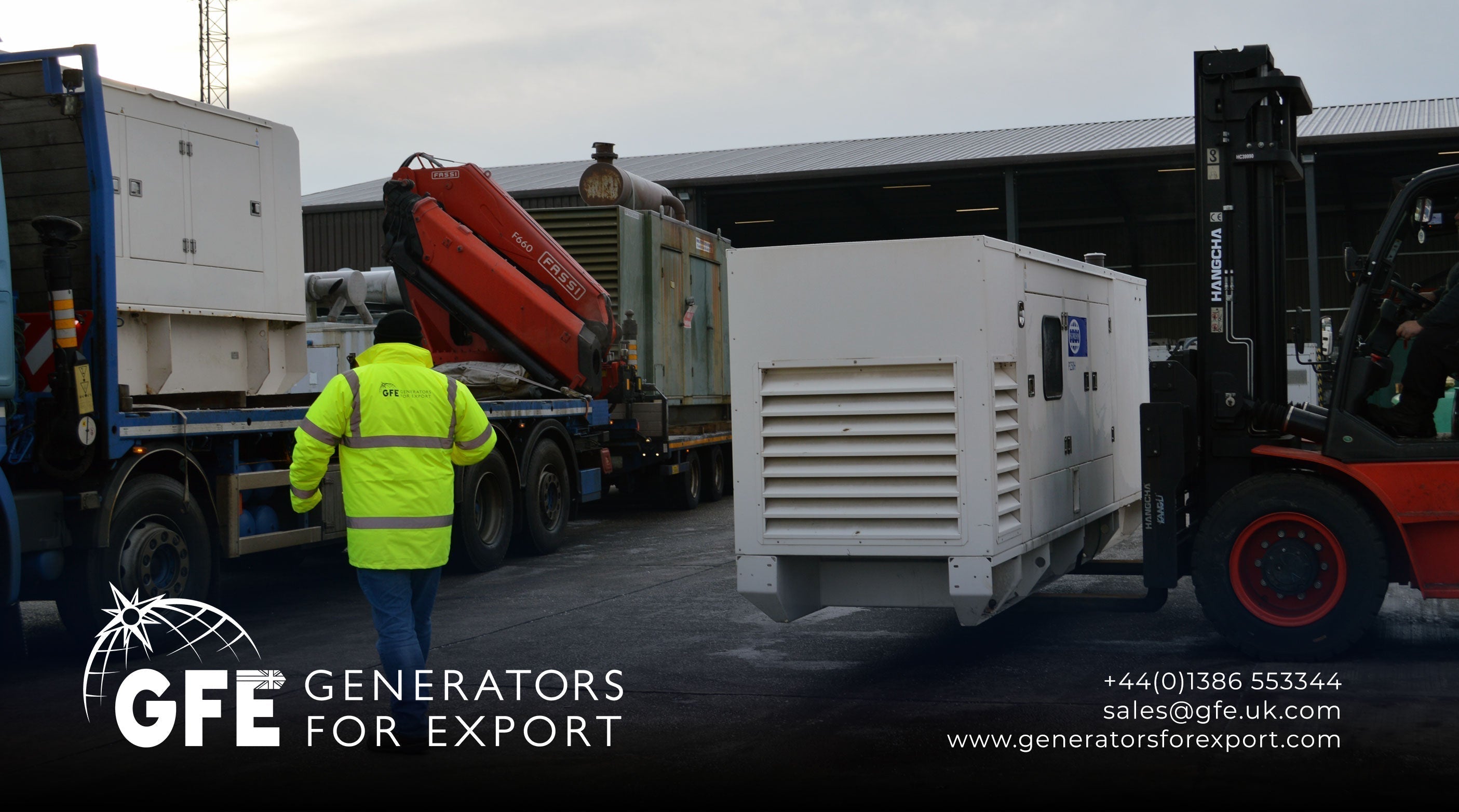Choosing between a 3-phase and a single-phase generator is a crucial decision when investing in a used diesel generator. The right choice depends on your power requirements, equipment compatibility, and long-term usage needs. At Generators For Export, we specialise in supplying high-quality used diesel generators, and we help customers determine the best power solution for their application.
This guide will walk you through the differences between 3-phase and single-phase generators, their advantages, and when to choose one over the other.
Understanding Single-Phase and 3-Phase Power
Before deciding on a generator type, it’s important to understand the basic differences between single-phase and 3-phase power:
Single-phase power: Uses two wires – one live and one neutral – to deliver power. It’s commonly found in residential and light commercial settings.
3-phase power: Uses three live wires (and a neutral in some cases) to provide a more stable and efficient power supply. This is the standard in industrial and commercial environments.
The choice depends on your electrical setup and the type of equipment you intend to power.
Advantages of a Single-Phase Generator
A single-phase generator can be a great choice for certain applications, offering several benefits:
- Ideal for homes and small businesses: If you need backup power for a house, office, or a small commercial facility, a single-phase generator is often sufficient.
- Easier installation and maintenance: These generators have a simpler design with fewer components, making them easier to install and maintain.
- Cost-effective solution: Single-phase generators tend to be more affordable than their 3-phase counterparts, both in terms of initial investment and maintenance costs.
- Works with most standard appliances: Household appliances and small commercial machinery typically run on single-phase power, making these generators a natural fit.
When to Choose a Single-Phase Generator
Opt for a single-phase generator if:
- Your property is wired for single-phase electricity.
- You are running home appliances, lights, or small office equipment.
- Your power demand does not exceed 20-25 kVA.
- You need a budget-friendly backup generator for occasional use.
Advantages of a 3-Phase Generator
A 3-phase generator is designed for higher power demands and offers several key benefits:
- More efficient power delivery: Three-phase generators provide a continuous and balanced power flow, reducing voltage drops and fluctuations.
- Higher power capacity: These generators can handle heavy machinery, industrial equipment, and large commercial setups.
- Better for long-term operation: If you need a generator that will run for extended periods, a 3-phase system is more stable and efficient.
- Lower running costs for large loads: Despite a higher initial cost, 3-phase generators can be more economical for large-scale operations due to their efficiency.
When to Choose a 3-Phase Generator
A 3-phase generator is the right choice if:
- You are running industrial or commercial equipment with high power demands.
- Your property has a 3-phase electrical supply.
- You need to power large motors, HVAC systems, or heavy-duty tools.
- You require a generator above 25 kVA.
Can You Use a 3-Phase Generator for Single-Phase Power?
Yes! A 3-phase generator can supply single-phase power, but there are some considerations:
- The total available power will be reduced when running in single-phase mode.
- Wiring and load balancing must be done correctly to avoid damaging the generator or connected equipment.
- If you have a mix of single and three-phase equipment, a 3-phase generator with proper distribution may be the best solution.
Key Factors to Consider When Choosing Between Single-Phase and 3-Phase Generators
To make the right decision, consider the following:
- Power Requirements: Calculate the total wattage of the equipment you need to power. If your load is under 20 kVA, single-phase may be sufficient; if it’s above, a 3-phase unit is likely required.
- Existing Electrical Setup: If your site is already wired for 3-phase power, choosing a 3-phase generator makes more sense.
- Application Type: Industrial, commercial, and large agricultural operations typically require 3-phase power, while households and small businesses usually need single-phase.
- Budget Considerations: While 3-phase generators tend to be more expensive upfront, they can be more cost-efficient for high-power applications in the long run.
- Future Expansion Plans: If you plan on expanding your operations or adding more heavy-duty machinery, a 3-phase generator offers better scalability.
Which Generator is Right for You?
The choice between a single-phase and a 3-phase generator ultimately depends on your power needs and application. If you are running a home, small business, or light commercial setup, a single-phase generator is often the best fit. However, for industrial and high-power applications, a 3-phase generator is the smarter investment.
At Generators For Export, we offer a wide range of used diesel generators to suit different needs and budgets. Whether you need a reliable single-phase unit or a powerful 3-phase generator, we can help you find the perfect solution.
Need Expert Advice?
If you’re still unsure which generator is right for you, get in touch with our team for expert guidance, contact us today.
Let us help you power your business with the right generator solution! Take a look at our range of used diesel generators now!
Call: +44(0)1386 553344 | Email: sales@gfe.uk.com

